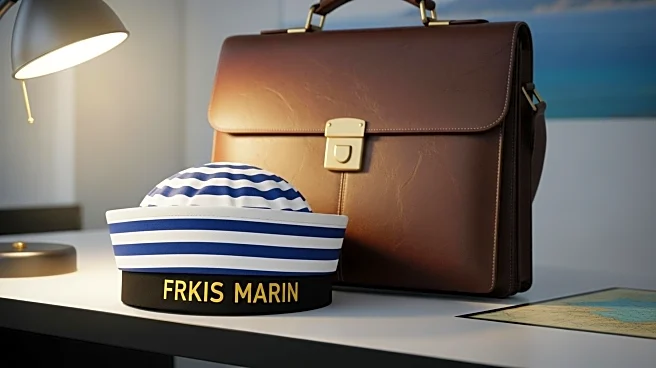What is the story about?
What's Happening?
Petit Bateau, a renowned French children's wear brand, has been acquired by the US investment fund Regent. The Rocher Group, which has owned Petit Bateau since 1988, announced its intention to sell the brand in January 2025. The acquisition by Regent, a private equity firm based in Beverly Hills, California, marks a significant shift for Petit Bateau, which was founded in Troyes, France, in 1893. Regent specializes in revitalizing heritage brands and has previously acquired companies like DIM, Bally, and La Senza. The Rocher Group expressed that this divestiture aims to inject new growth momentum into Petit Bateau, leveraging Regent's resources and expertise. The sale was officially presented to staff representatives on September 4, 2025.
Why It's Important?
The acquisition of Petit Bateau by a US investment fund underscores the growing trend of American firms investing in European heritage brands. This move could potentially lead to a revitalization of Petit Bateau, expanding its market reach and introducing new growth strategies. For the US investment landscape, this acquisition represents an opportunity to diversify portfolios with established European brands. However, the sale has sparked concern among French consumers who view Petit Bateau as a cultural icon. The brand's transition to American ownership may lead to changes in its business strategy, potentially affecting its traditional market positioning and product offerings.
What's Next?
Following the acquisition, Regent is expected to implement strategies to enhance Petit Bateau's market presence and profitability. This may include expanding its product lines, increasing its digital footprint, and exploring new markets. Stakeholders, including employees and consumers, will be closely monitoring how Regent manages the brand's heritage while pursuing growth. The acquisition could also prompt other US investment firms to consider similar opportunities in the European market, potentially leading to further cross-border investments in the fashion industry.
Beyond the Headlines
The acquisition raises questions about the preservation of cultural heritage in the face of globalization. As more heritage brands are acquired by foreign entities, there is a risk of losing traditional values and practices that define these brands. This development highlights the need for a balance between modernization and cultural preservation, ensuring that the essence of such brands is maintained while pursuing growth and innovation.















